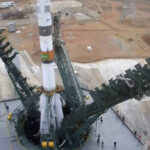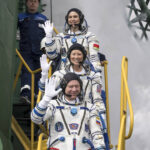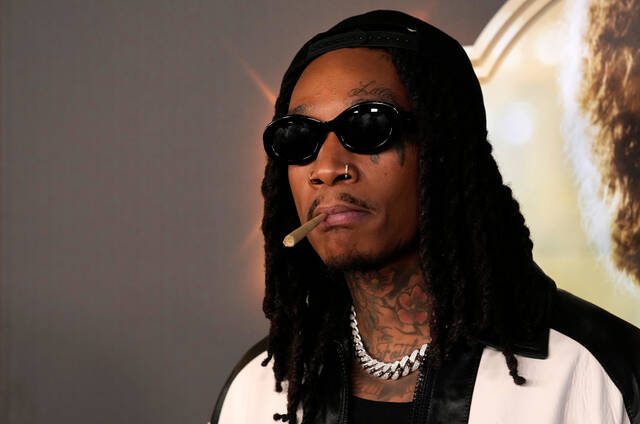MOSCOW — A Russian Soyuz rocket carrying three astronauts to the International Space Station blasted off Saturday, two days after its launch was aborted at the last minute.
The spacecraft carrying NASA astronaut Tracy Dyson, Russian Oleg Novitsky and Marina Vasilevskaya of Belarus launched smoothly from the Russian-leased Baikonur launch facility in Kazakhstan.
The launch had been planned for Thursday but was halted by an automatic safety system about 20 seconds before the scheduled liftoff. The head of the Russian space agency, Yuri Borisov, said the launch abort was triggered by a voltage drop in a power source.
The space capsule atop the rocket separated and went into orbit eight minutes after the launch and began a two-day, 34-orbit trip to the space station. If the launch had gone as scheduled on Thursday, the journey would have been much shorter, requiring only two orbits. Docking is now expected at 1510 GMT Monday.
The three astronauts were to join the station’s crew consisting of NASA astronauts Loral O’Hara, Matthew Dominick, Mike Barratt, and Jeanette Epps, as well as Russians Oleg Kononenko, Nikolai Chub, and Alexander Grebenkin.
Novitsky, Vasilevskaya and O’Hara are to return to Earth on April 6.
The space station, which has served as a symbol of post-Cold War international cooperation, is now one of the last remaining areas of collaboration between Russia and the West amid tensions over Moscow’s military action in Ukraine. NASA and its partners hope to continue operating the orbiting outpost until 2030.
Russia has continued to rely on modified versions of Soviet-designed rockets for commercial satellites, as well as crews and cargo to the space station.











